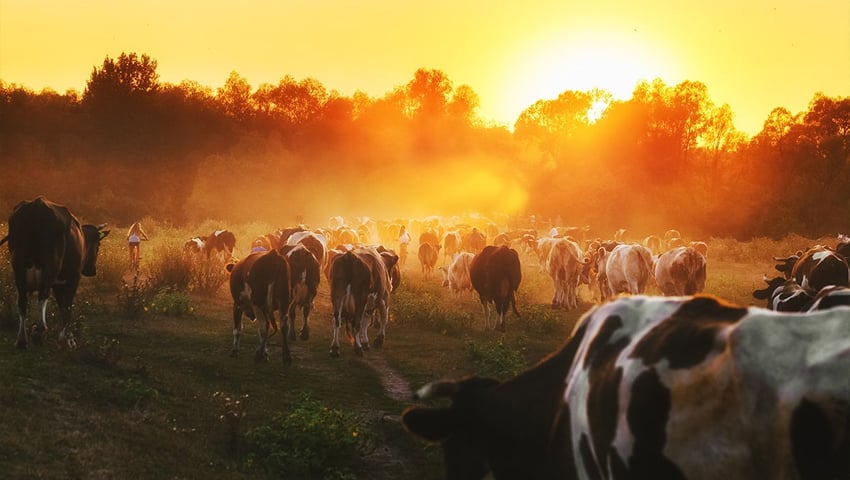Commentary from Rob Hindle, Rural Solutions
GROUNDSWELL is a vibrant meeting point for those at the vanguard of regenerative agriculture in the UK. But my big question is how to break through to the next level of engagement and ultimately to the mainstream adoption of regenerative food production in the UK?
The knowledge base around regenerative farming is growing fast. Groundswell is in its eighth year. FarmEd has been delivering on its mission to inspire, educate and connect – FAI Farms is an exceptional educator – consultants like Neils Corfield and Caroline Grindrod have been inspiring a new generation of farmers for years – and now there are even academic courses in regenerative agriculture.
With the evidence in place, policy alignment strong, the call to action urgent and clear, how can the regenerative message cut through the significant ‘noise’ created by the clamour across our industry of ‘business as usual’?
There is little evidence of intent from Government beyond the (welcome) Sustainable Farming Incentive. Natural England’s Catchment Sensitive Farming Officers, Rivers and Wildlife Trusts do exceptional work across the country, but their interests are specific. Like many facilitation initiatives, they don’t speak to entire farming systems.
So, we certainly need a greater focus on regenerative farming in our media – and to that end it’s exciting to see the emergence of home-grown news channels like 8.9ha and the Farm Gate podcast, which add to international offerings such as Charlie Arnott’s The Regenerative Journey and John Kempf’s Regenerative Agriculture podcast.
The key to the breakthrough lies in the food and fibre supply chain, with the people that buy products and commodities from UK farmers and growers, and those who sell them to the end consumer.
We need to find a way of energising this audience, for it is they that have a direct line to the mass of producers, and who will, if they feel it expeditious, educate, inform, and perhaps even inspire.
It’s good to see the ‘Naturally Better Dairy Group’ [https://8point9.com/first-milk-launches-naturally-better-dairy-group-partnership-with-yeo-valley] partnership that British farmer-owned dairy co-operative First Milk [https://8point9.com/mark-brooking-first-milk-naturally-better-dairy-group] has announced with – but we need more of these partnerships, ideally with retailers as well as processors and manufacturers.
We also need those in the food sector who have influence on farming culture and systems to create a positive flow of regenerative led communication with both their supply chain and their customers, which is why I’m encouraged by the noises coming out of multinationals such as Danone and Nestlé.
But this needs to be about more than carbon and net-zero.
The message needs to focus on producing nutritious, affordable food and fibre in nature friendly farming and food systems that regenerate both people and planet. Do that right, and as a direct consequence, carbon consumption will fall and sequestration increase.
To establish and invest in such communication channels, people in the food, fibre and retail businesses will need to go on their own regenerative journeys – and perhaps this is where the regenerative movement should try to focus its efforts. It’s likely to pay far greater dividends than trying to push water uphill with policy makers or the established mainstream agri-business sector.
Rob Hindle is Executive Director Rural Solutions, and a promoter, enabler and facilitator of regenerative farming, business and the management of natural capital.
